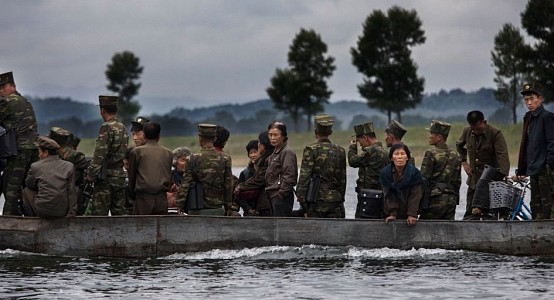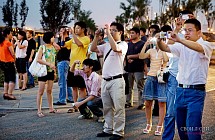China plans to build 5 camps for North Korean refugees

Almaty. December 12. Silkroadnews - China plans to build 5 camps for North Korean refugees, Business Insider reports.
“According to The New York Times, a leaked document from state-run China Mobile that appeared on the microblogging site Weibo, said the telecommunications company was contacted to check for “viable internet service” at the five sites in the northeast border province of Jilin,” the publication said.
“Because the situation on the China-North Korea border has intensified lately, Changbai County government plans to set up five refugee sites in Changbai,” the document says.
A spokesperson for the Ministry of Foreign Affairs of China said the ministry is not aware of reports on refugee camps, but does not deny plans for their creation.
According to the publication, North Koreans often flee to China because of the large shared border of the countries. Jilin province alone has a 200-kilometer border with North Korea, and most of it runs along the narrow Tumen River, which can be waded across in summer or walked on when frozen in winter.
During the great famine in North Korea in the 1990s, up to 300,000 North Koreans fled to China, most of which crossed the Tumen River.
Reportedly, the plans for the establishment of camps may indicate a change in China’s policy towards North Korean refugees. In the past, China stated it does not recognize North Korean defectors as refugees, but considers them to be illegal economic migrants. Those caught were arrested, many were sent back to North Korea.
“Those North Koreans have illegally crossed the border due to financial hardship in their homeland. They did not go through normal immigration procedures and also disrupted public order in our border regions,” Korea Times quoted saying by the Chinese delegation two years ago.
Earlier this year, China appeared to have tightened its control over the illegal crossing of its border by the DPRK citizens. According to Human Rights Watch, 41 citizens of North Korea were detained in July and August, almost as many in all 2016. Of all those, almost half have been sent back to North Korea.


